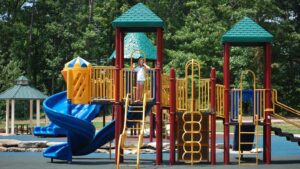
Have you ever wondered if the path to academic excellence must always be paved with stern discipline and rigorous study habits? This article unveils the surprising connection between entertainment and educational success, particularly for students who take their academics seriously. Readers will discover the significance of games in bolstering learning and engagement and the art of merging pleasure with study methodologies for optimal achievement. The article tackles the challenge of maintaining motivation through what can often be a strenuous academic journey by presenting a synergistic approach to rigorous studies and strategic play. Keep reading to explore how to blend fun and learning for greater academic success effectively.
The Role of Games in Enhancing Learning and Engagement
Games in educational settings are increasingly recognized for their potential to bolster student engagement and enhance the learning experience. They introduce an interactive element that can transform challenging concepts into manageable and enjoyable tasks.
Integrating game-based learning strategies within the curriculum addresses various learning styles and fosters critical thinking. This diversity of approaches allows learners to engage with content on a deeper level, facilitating higher retention rates and academic proficiency.
A social casino game can be an engaging platform for promoting skill development and strategic thinking. They can make learning enjoyable while fostering a sense of community among players. These environments blend the excitement of competition with the absorption of educational content, creating a symbiotic relationship between amusement and learning.
When implemented thoughtfully, games can provide a dynamic framework for knowledge acquisition, moving beyond passive reception to active participation in the educational process.
They catalyze motivation and reinforcement, ultimately contributing to enhanced academic outcomes.
Effective Study Strategies: Balancing Seriousness with Enjoyment
Students pursuing an information systems degree often find themselves immersed in challenging material that requires rigorous study. Integrating enjoyable activities into study routines helps maintain motivation and enhances one’s grasp of complex concepts. This approach ensures a sustainable blend of productivity and pleasure, facilitating a more engaged learning experience. If you are looking for flexible options, Google “information systems online” to explore various programs that fit your needs.
Structured study sessions and periodic leisurely pursuits have increased student retention rates in technical disciplines. When learners engage with the material in a variety of contexts, they can forge stronger connections and improve recall. The use of gamified learning tools, for instance, can transform the absorption of intricate information systems subject matter into an interactive and enjoyable endeavor.
Collaborative learning, where students interact and solve group problems, is an excellent strategy to balance seriousness with enjoyment. These collective sessions contribute to a deeper understanding and foster community among peers. This shared educational journey can alleviate the rigors of studying while amplifying the collective knowledge base.
Finally, introducing interdisciplinary projects beyond the confines of information systems can rejuvenate a student’s academic curiosity. These projects allow the integration of personal interests, making the learning process relevant and intrinsically rewarding. As such, learners are more likely to persist through challenging coursework when they can connect it with broader intellectual pursuits.
Harnessing Creativity: How Playfulness Fuels Academic Success
Academic success is not solely the product of studious repetition and memorization; it blossoms from a blend of creative thinking and playfulness. When students introduce an element of fun into their education, they unlock innovative thinking, which is as vital to learning as it is to invention and problem-solving.
The intersection of play and academia creates an environment ripe for discovery, where serious students can cultivate a diverse skill set. Creativity is encouraged and necessary in these dynamic spaces, fostering a deeper engagement with the material at hand.
Strategic play, as found in certain educational games, challenges students to apply their knowledge in practice, solidifying their understanding. This approach to learning exemplifies how educational attainment can be significantly improved by incorporating joy and creativity in study strategies.
Ultimately, the amalgamation of playful learning strategies drives academic performance and sustains students’ enthusiasm for their subjects. Nurturing the inventive minds that will lead future advancements across disciplines is vital.
Overall, integrating fun and enjoyment into the learning process can significantly enhance academic achievement for serious students. By embracing strategies that blend playfulness with rigorous study, learners can cultivate a deeper understanding of complex material while maintaining motivation and enthusiasm throughout their educational journeys.








